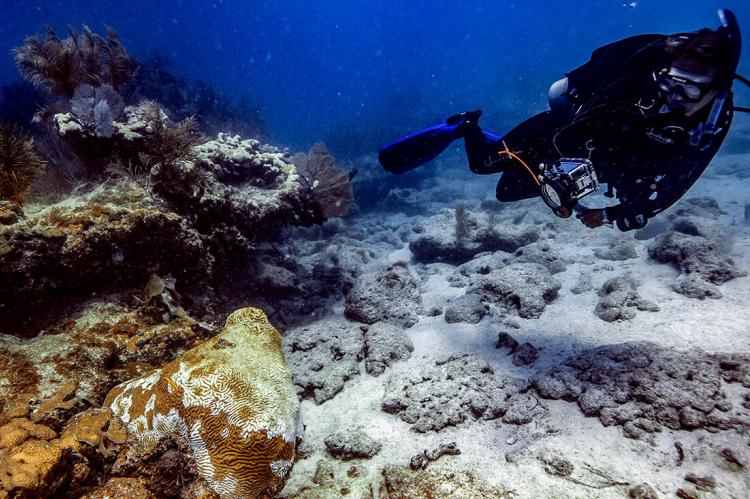NOAA to present Florida Keys draft restoration plan
Investigation is ongoing to identify the cause of the ongoing stony coral tissue loss disease that is affecting nearly half of the stony coral species found on the Florida Reef Tract, including the primary reef-building species.
The ongoing outbreak of stony coral tissue loss disease in the Florida Reef Tract began in 2014 and continues to spread. It is highly active off Key West, Florida and appears to be expanding to the Caribbean region. The Lower Florida Keys are in the epidemic zone with the highest concentration of active disease.
Tissue loss progresses as a band or line from the base of the colony to the margins or as a series of irregular blotches that radiate outward and often coalesce. Small colonies often die within a few weeks to months, while infections can persist on larger colonies for several seasons. While disease outbreaks are not uncommon, this event is unique due to its large geographic range, extended duration, rapid progression, high rates of mortality, and the number of species affected. Stony coral tissue loss disease affects at least 22 species of reef-building corals. Once infected, coral colonies typically die within weeks to months.
Scientific investigation continues into the cause and effect of the stony coral tissue loss disease and potential management and reef restoration strategies.
Restoration plan
NOAA will present its draft proposal to restore the Florida Keys marine ecosystem during the Florida Keys National Marine Sanctuary advisory council meeting on Tue., Aug. 20 in Marathon, Florida. The meeting starts at 9 a.m. and is open to the public.
The plan, known as the Restoration Blueprint, seeks to address long-term declines to the Florida Keys’ marine resources as well as ongoing and emerging threats due to increased use and changing ocean conditions. It includes NOAA’s proposed changes to the sanctuary’s boundary, marine zones, regulations and management plan.
An agenda is posted at floridakeys.noaa.gov/sac/meetings.html. This meeting will also be streamed live on YouTube on the FKNMS Sanctuary Advisory Council (SAC) channel.


